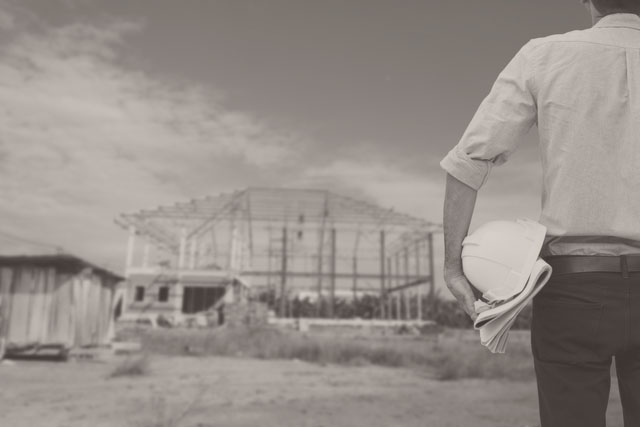Did you know that the construction industry develops $1.3 trillion worth of structures every year?
If you’re new to the construction industry, you may not know that construction contractors get most of their jobs by bidding on a project. As technology continues to evolve and more bid building tools are becoming available, securing more contracts as a subcontractor has never been easier.
Learning about the world of construction bidding doesn’t have to be overwhelming. In this complete guide, we’ll explain how you can improve your bids and how you can make yourself stand out from the rest of your competition. Keep reading to learn more!
Make Sure Your Numbers Are Accurate
When you’re first getting started in the subcontractor bidding process, it’s essential that you make sure that your numbers are accurate. If you have inaccurate takeoffs, math, or measurements, it can severely impact your bid’s accuracy.
Ensure that you’re using the same measurement unit as the architect so that your bid can be more accurate. You should also do your best to avoid scaling plans because it creates the opportunity for inaccuracy. If you submit your bid using meters rather than feet, it creates accuracy in your bid, causing you to lose out on the bid.
Also, make sure that there aren’t any mathematical errors in your bid. Double-check your calculations to make sure that they’re accurate. If you don’t have any inaccurate calculations, it can cause you to lose out on a bid that you otherwise would have won.

Always Visit the Site
Before you place a bid on a project, always make sure that you visit the site. If you don’t visit the site, you aren’t going to show the general contractors working on a project that you’re serious. Visiting the site will show a general contractor that you’ve seen you say that you’ll be working on and are serious enough to take on the project.
Also, visiting the site will give you knowledge of any additional costs that could arise. You’ll have the opportunity to ask questions about the project, about the site, and establish relationships that will connect you to the project.
In some bid situations, you may have to attend a pre-bid conference. If you don’t attend a pre-bid conference, it may automatically disqualify you from winning the bid.

Ask More Questions
You can work to avoid costly errors by making sure that you’re asking the right questions. General contractors, architects, and project owners want to ensure that the project is completed accurately. By asking questions, you’ll show the people you’re working with to have a complete understanding of the project.
When you demonstrate a complete understanding of all of the project’s requirements, you’ll be able to outline a timeline and budget that’ll be efficient to follow. Plus, asking questions will show that you’re investing time in preparing yourself for the proposal and that you’re going to take a project seriously.
Consider Equipment
Another reason you need to make sure that you’re visiting the site of the project is to help you understand what equipment will be needed. Visiting the site will allow you to learn if there is specialized equipment necessary for the project.
If there is specialized equipment that is needed for the project, you need to include the cost of this equipment in your bid. In any instance where you already have the equipment, make sure that this equipment isn’t being used on a different project.
Sometimes, you may have to resort to renting equipment. If you do end up renting equipment, make sure that you calculate the equipment’s cost into your bid.
Think About Your Timeline
Any overtime that has to be put into the project will play a significant role in the budget for your bid. You need to understand the project’s size, the timeline that you have, and how your team will work together to finish the project on time.
If you don’t believe that you’ll be able to finish the project without having overtime, you need to be sure to include the cost of overtime into your bid. In the instance where you don’t consider overtime into your bid, and you do end up having to use over time, it can make it seem that you went over budget on your bid.
On the other hand, if you end up including overtime into your bid, and you don’t end up using it, you’ll impress the project stakeholders!
Don’t Rush Through Bid Paperwork
Rushing for your bid paperwork is the easiest way to make a mistake that will disqualify you from a bid. Even if you’ve already completed several jobs similar to this in the past, every job that you’re submitting a bid for will have its own unique qualifications and requirements. Carefully go through and read all of the documents that are related to the project.
In addition, you should also be sure to visit the site before you begin to prepare your bid. Reviewing your paperwork will allow you to ensure that all of the numbers that you have written are accurate. You also will be able to make sure that you haven’t left any essential details out of the document.
Missing any of these important pieces of information in your bid paperwork or forgetting to submit completed documents will cause you to lose a bit. Carefully reviewing everything will help you to obtain more bids.
Understanding the Best Tips for Construction Bidding
Learning about the best practices for construction bidding will help you to win more bids. The bid process can seem overwhelming, but as long as you make sure that you stay on top of these best bidding practices, you’ll be able to accrue more construction project bids successfully.
Are you interested in learning more about how you can obtain even more bids? We’re here to help you. Click here to learn more about our construction software.
